926213
TADF Blue m-ACSO2
≥95%
Synonyme(s) :
10,10′-(Sulfonylbis(3,1-phenylene))bis(9,9-dimethyl-9,10-dihydroacridine), m-ACSO2, TADF with no host
About This Item
Produits recommandés
Description
PL: 473 nm (film)
delta EST: 0.07 eV
Niveau de qualité
Pureté
≥95%
Forme
powder
Bande interdite
3.1 eV
Couleur
pale yellow
Solubilité
THF: soluble
toluene: soluble
Fluorescence
(blue) (light)
Énergie orbitale
HOMO -5.36 eV
LUMO -2.26 eV
Application
Bright, deep blue and stable emitters for OLEDs are grand challenge on OLED design at the moment. In this context, our m-ACSO2 is a promising TADF as solution-processable TADF blue emitter without the need of a host with a singlet–triplet energy gap (ΔEST) of 0.07 eV.
Code de la classe de stockage
11 - Combustible Solids
Classe de danger pour l'eau (WGK)
WGK 3
Point d'éclair (°F)
Not applicable
Point d'éclair (°C)
Not applicable
Faites votre choix parmi les versions les plus récentes :
Certificats d'analyse (COA)
Désolés, nous n'avons pas de COA pour ce produit disponible en ligne pour le moment.
Si vous avez besoin d'assistance, veuillez contacter Service Clients
Déjà en possession de ce produit ?
Retrouvez la documentation relative aux produits que vous avez récemment achetés dans la Bibliothèque de documents.
Notre équipe de scientifiques dispose d'une expérience dans tous les secteurs de la recherche, notamment en sciences de la vie, science des matériaux, synthèse chimique, chromatographie, analyse et dans de nombreux autres domaines..
Contacter notre Service technique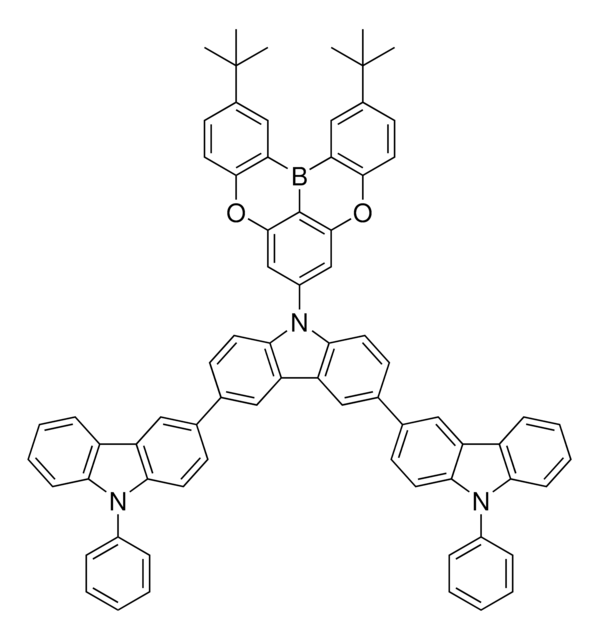

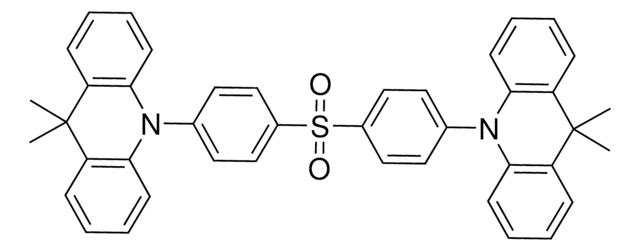
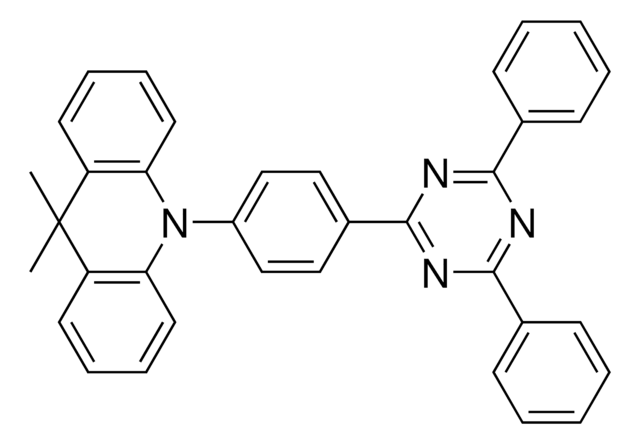
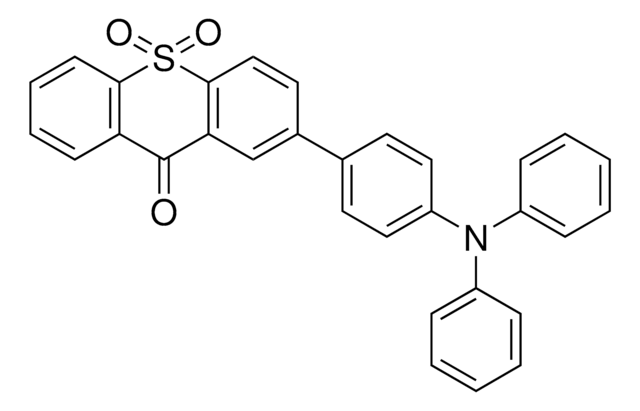
![10-Phenyl-10H,10′H-spiro[acridine-9,9′-anthracen]-10′-one ≥99% (HPLC)](/deepweb/assets/sigmaaldrich/product/structures/394/862/0b4edb18-2cc2-4101-ad81-6b29b0825723/640/0b4edb18-2cc2-4101-ad81-6b29b0825723.png)
iridium(III) 97%](/deepweb/assets/sigmaaldrich/product/structures/309/053/0823f035-245c-433d-b033-2eca2d931c67/640/0823f035-245c-433d-b033-2eca2d931c67.png)
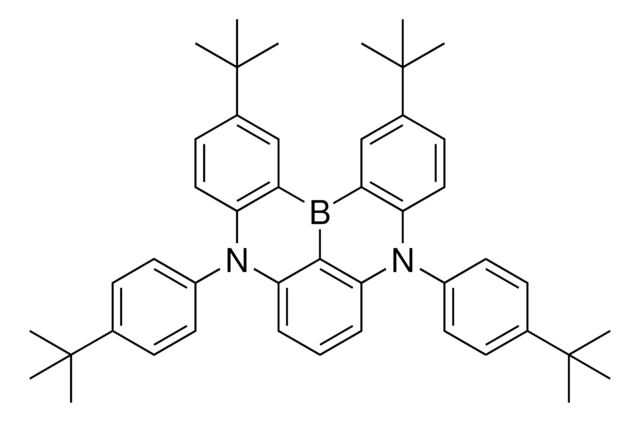
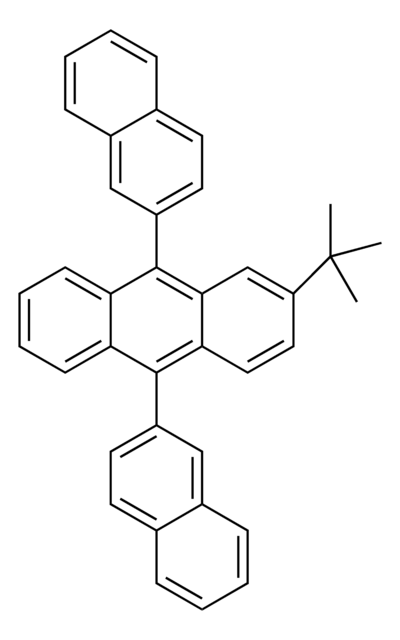
![Tris[2-phenylpyridinato-C2,N]iridium(III) 97%](/deepweb/assets/sigmaaldrich/product/structures/167/234/658d0b76-d31d-4fd5-8041-e04e207227c9/640/658d0b76-d31d-4fd5-8041-e04e207227c9.png)